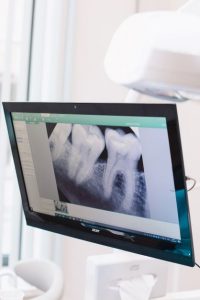05 Jul Infection under crown. Can I get it? Free guide here
Yes, you can get an infection under a crown, moreover, it’s a common problem that affects many people. For some people, a crown is the best way to fix a damaged tooth. A crown can help protect a tooth from further damage and keep it healthy. However, it’s important to know that even with a crown, the surrounding gum and bone need proper care. Here is an overview of infection under a crown.
What causes infection under a crown?
A tooth infected can occur for several reasons. Also, poor oral hygiene is the most common cause of infection under a crown. A tooth with a root canal that you don’t clean properly can lead too an infection.
Perforation in the crown can also cause an infection. If there is a crack or hole in the crown, bacteria can seep into the pulp chamber and cause an infection. Other causes include:
Dentures that don’t fit properly
Tooth decay under a crown
Infections caused by trauma, for example, biting down on something hard
Signs of an Infection under the crown
If you have this type of problem, it can be painful and, if left untreated, could lead to further complications. The following signs may indicate this:
Increased sensitivity in the area
Increased pain
Gumline redness
Visible pus
Swollen gums
Bleeding gums
Fever and chills
Bad breath
Ways to help relieve tooth crown pain
You can help relieve tooth crown pain by following these tips:
- Brush and floss regularly. Using a soft-bristled toothbrush and flossing daily for example, will help remove food particles that can irritate your gums.
- Use for example a fluoride rinse or mouthwash daily. Fluoride rinses help protect against decay and reduce tooth sensitivity.
- Avoid eating hot or cold foods. Spicy foods may irritate sensitive areas around your new crown, leading to pain and swelling.
- See your dentist for treatment. If you have an infection under the crown, your dentist can diagnose and treat it. Your dentist may clean the area under the crown and prescribe antibiotics.
- Apply over-the-counter pain medications like ibuprofen or acetaminophen for example if you have mild tooth pain.
- Eat soft foods, avoid hot or cold food, and drink until the infection subsides.
Visit our clinic
If you are experiencing tooth crown pain, it’s advisable to seek dental intervention. So, we will identify immediately the cause and provide expert advice ensuring that you get the best course of treatment. Additionally, if you need a new tooth crown, we will provide the service. In a word, schedule an appointment with us today for the best tooth crown services. Contact us here: CONTACT








No Comments